|
I have quite a few people asking me, what is it I do differently now compared to what I used to do regarding nutrition. I think the main answer is, I no longer restrict what I eat. If I want to have seconds, or a bigger dinner than usual, or a snack when I’m hungry, I will! It is so important not to restrict your intake; if your body is asking you for more food, it is probably because it needs it. I now no longer deny my body food when it demands it, but instead listen to it. I am very conscious to eat enough at every meal time to avoid getting hungry soon after and to eat when needed. I used to not allow myself to eat dessert after dinner, I was convinced I didn’t need it, and if no one else was having it, even if I was still hungry, I wouldn’t allow myself to have dessert. Now things are different. I will always eat something after dinner. Usually it is some form of yogurt or rice pudding, but even if I don’t necessarily still feel hungry, I will always have something else, because I know I need it. This is extremely important too, as it is not wise to go to bed on an empty stomach. We need enough fuel to help the overnight recovery process. On tough session days, I frequently have a glass of milk before I go to sleep to keep my body repairing. I am much more aware of all the different food groups that are essential to my diet, especially when pushing my body to the limit daily. Calcium is a vital nutrient I used to deny my body. For no reason, I would avoid any sort of diary produce, but this became detrimental to my health. Calcium is so important to the development and maintenance of bone health and should not be restricted. I now ensure calcium is incorporated into my diet throughout the day. I am also very conscious about having a little bit of everything on my plate at meal times. It is so important to incorporate some form of food from the main food groups into your meals. I used to be very bad at doing this, conscious that it would add ‘too many’ calories to my plate, but this is rubbish. Quality is so much more important than being concerned with reducing the quantity on your plate, so make sure you have it all! I always make sure I start the day right with a big breakfast. Breakfast sets me up for the day ahead. If I have a busy day of training and work, I need to eat enough to last me until lunch time. This will usually consist of two slices (thick, hand cut slices… I love a good loaf!) of toast with lashings of almond butter, a yogurt, and some fruit. This fills me up perfectly and provides me with the energy I need to complete a jam-packed morning. Pre-sliced bread does nothing to fill a whole in my stomach, so I opt for that which I can cut myself (and it is a lot tastier!). I now always make sure I have something straight after a big session. There is lots of controversy as to whether you do or don’t have a 20-minute window to get protein in after a tough session. However, I feel it doesn’t matter if it is scientifically proven or not, there can’t be any detriment to doing it. Therefore, I always carry a flask of milk with me to a session, so I can drink it straight after to kickstart the recovery process. Not only does this provide me with protein, but also some of the calcium I need for strong bones. In the past I was very ignorant to the importance of replenishing after a session, which didn’t help me progress at all! Now I get something light in straight away, and make sure I have a good meal not too long after.
Whilst there are so many things I do differently now compared to before, these are a few key differences. Some things I do may not work for others, therefore it is so important to listen to your body as we are all unique.
0 Comments
With the London Marathon looming, it got me thinking about the motivation behind all the runners, and the stories behind the charities they are running for. I go to watch the marathon every year, and I’m amazed at the level of commitment and determinations that the runners display. Over the last few miles, you see gritted teeth, contorted faces, legs sapped of all energy, sweat, pain, sometimes even blood. Its something that no-one would do, unless that had a very particular reason for doing it. It is these stories, that makes the marathon special. I have a friend running this year – Ben Evans. He was an elite marathon runner, then had to take a year our of competition when he was diagnosed with cancer. His story is one of the most remarkable of this year’s race. Returning to running after having time out is one of the hardest parts of the sport. As much as you try to prepare yourself for that first run back, you can never be ready for the weight that hangs over you when you realise you are nowhere near where you used to be. It can be extremely difficult to confront this, especially if you are told you can start running, but you won’t be as good as you were before. For most people, this wouldn’t matter that much, but for a runner with goals, targets, and aspirations, this is very difficult to deal with. Running is what we do. Our lives are driven by it. When you are forced to have time out because of illness, this return to fitness can be even more complex. Your whole body is a lot weaker than it used to be, not just a sole area as when you are injured. This is when the struggle is even harder. This is the struggle Ben Evans, knew all too well. Ben, a member of Guildford and Godalming AC, was all set to train for the 2018 race, but then received his a shock diagnosis of stage 3 bowel cancer. ‘I woke up with stomach-ache and went out to try and run it off. Then, 24 hours later, I was in surgery having a tumour removed.’ The cancer had spread to his lymph nodes, and Ben was prescribed 6 months of intensive chemotherapy. There was no certainty that he would be cancer free again. 'I thought my running days were over for good,' he concedes. ‘As a marathon runner, I was used to feeling exhausted, but this was nothing compared to the harshness of chemotherapy. Since receiving the all clear, Ben slowly regained his fitness, and through the help of a local gym, got back into running shape. Within a few months he was back winning the local parkrun and has then moved up to training for the marathon. He admits that running is harder now, but is still aiming for a good time, close to three hours for the 26.2 mile race.
'Many people think that cancer is the end. I want to show them that it is just the beginning, and the experience can make you stronger in body and in mind.' Ben talks of how he struggled to find a role model to look up to whilst going through chemo. Someone he could admire and say ‘they’ve come back to running fast, so can I.’ Of course, people have run marathons after cancer, but had anyone run a fast marathon? He wanted someone he could look at and see that it is possible. ‘I know in many ways I should be thankful that I can run at all,’ he says. ‘But imagine being a musician, becoming sick, and then being told that you can go back to playing, but only really badly. How would that make you feel?’ Inspired by his own experiences and wanting to inspire others, Ben has helped to create a charity – ThriveFit – that provides free fitness classes to people going through cancer. He is running to raise funds for the charity, and is keen to raise awareness of their work. ‘It can be hard dealing with everything that cancer throws at you. Without the help of the others, I don’t think I would have made it back. Through ThriveFit, I want to help everyone get back to activity after illness, and make this accessible to all, whatever the level of fitness or mobility. I’m not saying that everyone should be able to run a marathon, but they should be given the chance to attain a level of fitness that gives them a happy and healthy life, whatever that means to them.’ When I’m watching the marathon this year, I’ll be thinking about Ben’s story. Who are all these people? What have they gone through to get to the start line? What’s their motivation to push themselves to the limit and beyond? How fortunate am I to do the sport that I love? It is these stories that make the marathon special. Good luck to everyone running. ThriveFit offer free fitness classes to people disadvantaged by, age, ill-health, youth, disability, and financial hardship. Please head over to their website, www.thrivefit.uk for more information. It can become so easy just to run on the roads that we may find ourselves becoming complacent. It’s the simplest option, you don’t have to think too hard about a route, and it can seem a lot easier than going off road. It is however, so important to mix up the terrain you run on. Not only does it make some runs a bit more exciting than others, but it is important to give your legs a break every now and then from pounding on the roads, especially when doing sessions. Sometimes it isn’t a case of making your run more exciting by going off road, but doing it because it’s better for your legs. It may seem extremely dull at times, but it is so important to run on the grass, and not just on the road and track. When you think about the pounding your legs take with every stride on the road you can see why it may be worthwhile to switch to the grass every now and then. Whilst you don’t need to only run off road, incorporating different terrains for training can be very beneficial. I used to be a sucker for only running on the roads. It was convenient, and I didn’t have to think about where I was going, but was it really the best thing for me? Post-injury, I can definitely say it wasn’t. The roads aren’t forgiving, and whilst it is important to continue to run on them as we do race on them in the end, it is vital to give your legs a break from them regularly. Since my injury, I now do nearly half of my training on the grass. Yes, it can be extremely dull running countless times round a few football pitches, but if you switch your mind off to what you are doing, and enjoy the softness of the ground, you soon come to enjoy it. Sometimes I find I enjoy my runs on the grass more than those on the road. I have no roads to cross, no cars to be aware of, and my brain completely switches off to any worry that I am not doing my legs any good.
Running on different terrains can also be really beneficial for strengthening your ankles. When running on slightly uneven ground, or soft ground, you are having to work harder to stabilize, as well as push off the ground. Therefore, without even realising you are working on your mobility at the same time. Following my injury, I found I had very weak ankles, which needed to change before I started racing cross country again. Of course, I incorporated ankle strengthening exercises into my training, but doing my sessions off road also helped with this. Once I had built up my confidence that I wasn’t going to twist my ankle or break something else, I was able to push myself just as hard, if not harder than I was on the road. This isn’t to say we should switch all our training to the grass, as the road and the track are vital to our training, but even just doing one run a week on the grass can make a massive difference and give your legs a break. Earlier in the week I overheard some people having a conversation that drove me to write this post. One of them said they felt guilty eating because they hadn’t “earned it”. I realised they meant they hadn’t exercised so they didn’t feel as though they had earned their food! This is completely the wrong mindset to have regarding food, and one that can lead you down a very dangerous path, as I have found out. We should not be telling ourselves things like this, it couldn’t be further from the truth. Food is not something that needs to be earned, especially if you are asking as much of your body as we do as runners. Food is fuel and is essential. We need it to have enough energy to get through the day, we need it to allow our bodies to recover from the strain we put them through, and we need it to be able to run to our full potential. Without enough of it, none of this will be possible. It is an awful mindset to have to perceive food as something that can only be earned through burning calories. Not only does this lead to an unhealthy relationship with food, but also with training and exercise. If you see running as something to do to burn calories, before long you will begin to resent it. I run because I love it, and I train hard because I want to get faster and stronger, not because I want to burn calories. When this was my mindset I was running the worst I ever have done. I began to resent training because I was doing it in an energy deficient state that meant I struggled from the get go. I hadn’t fuelled myself properly prior to training sessions because, in my eyes, I had not yet earned the food I needed, therefore I wasn’t making any gains from the sessions I was doing. Looking back on it now I can’t help but emphasise the importance of fuelling yourself properly before and after any session, and as importantly, on rest days. The best way to improve your performance, if you aren’t doing this already, is to eat properly and sufficiently. This will lead to a much healthier relationship with training. Additionally, if you see food as a source of enjoyment that you deserve, you will be much more likely to enjoy eating it, rather than if you punish yourself every time you eat without having exercised. I find it so sad when I overhear people talking about “earning” their food. I find it awful that this mindset is still so prevalent among people in our society. What made it worse was the statement I overheard came from two mothers. Two mothers who may drill the same belief into their children. It can’t be stressed enough how important it is to listen to your body and feed it when it needs food. This is something we need to be telling the younger generations in order to allow them to develop a healthy relationship with food too! Eat when you are hungry or when you know you need to eat, don’t let your judgement be clouded by whether you have ‘earned it’ or not. I am aware some people have different goals of weight loss, but food still doesn’t need to be seen as something to earn. If you are trying to run to your full potential and push your body to the limit daily, being concerned about earning your food should be the last of your concerns. Yes, we may all have thoughts about whether we have eaten too much and not done as much exercise as we usually do, but this needs to be ignored. It is so important to have the strength to override this belief and eat the amount of food your body is asking you for.
It is so important not to see food as something we have to earn. We NEED it. Without sufficient fuel we struggle to function properly in everyday life, let alone when pushing our bodies in training sessions. |
Hannah IrwinI love to run and I love to write, so I write about running! Archives
March 2023
Categories |
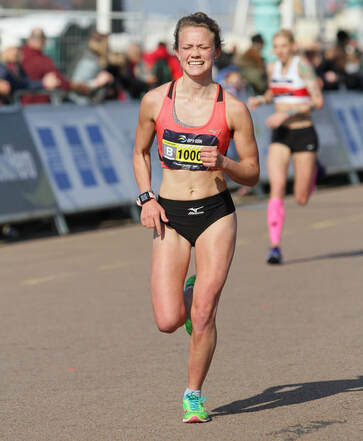
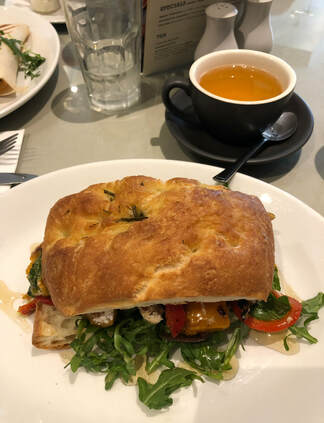
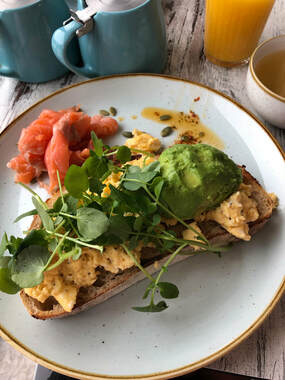
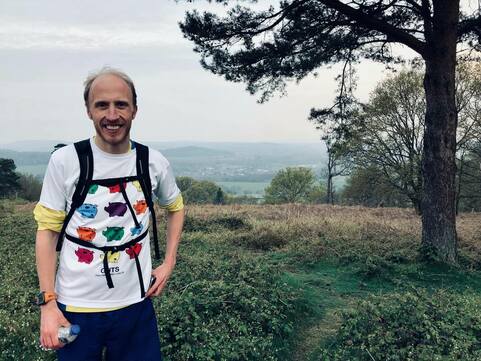
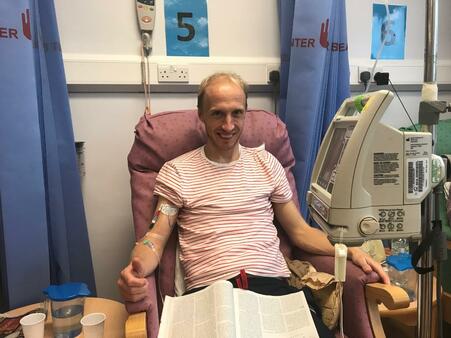
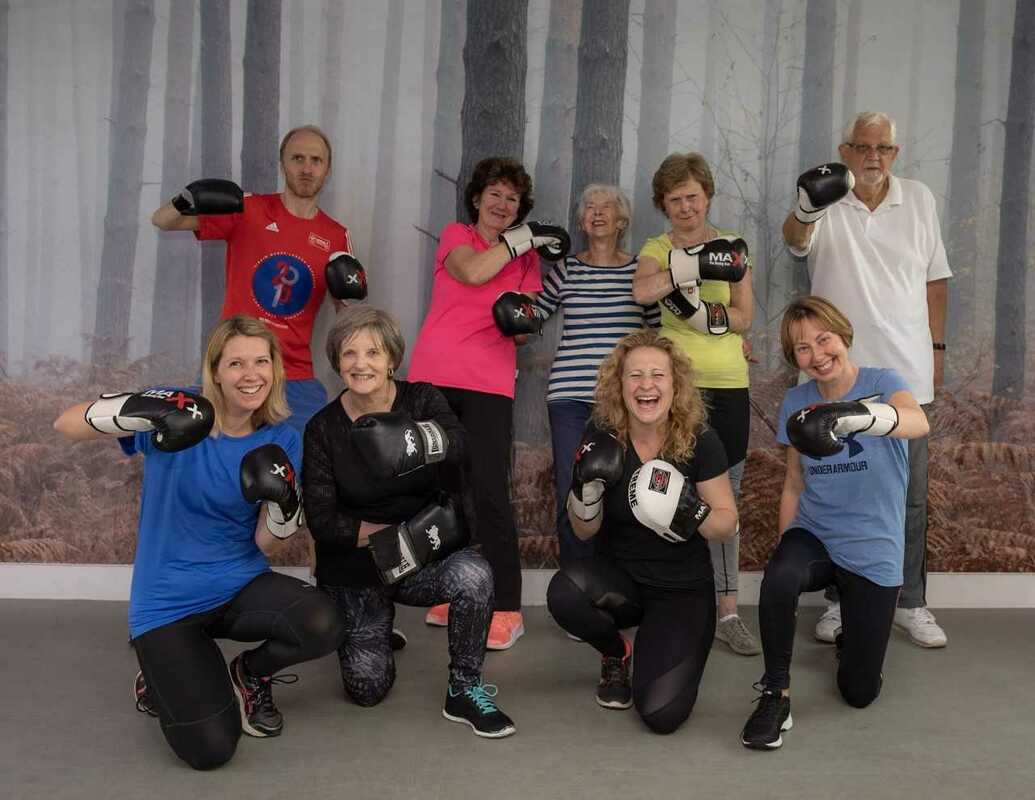
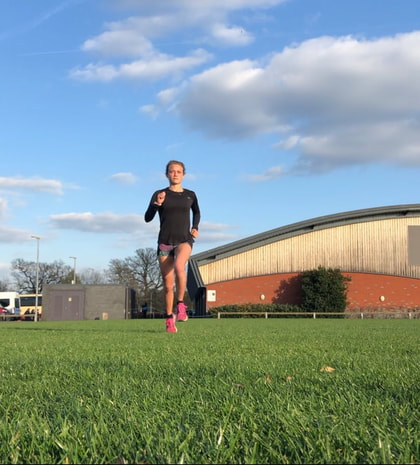
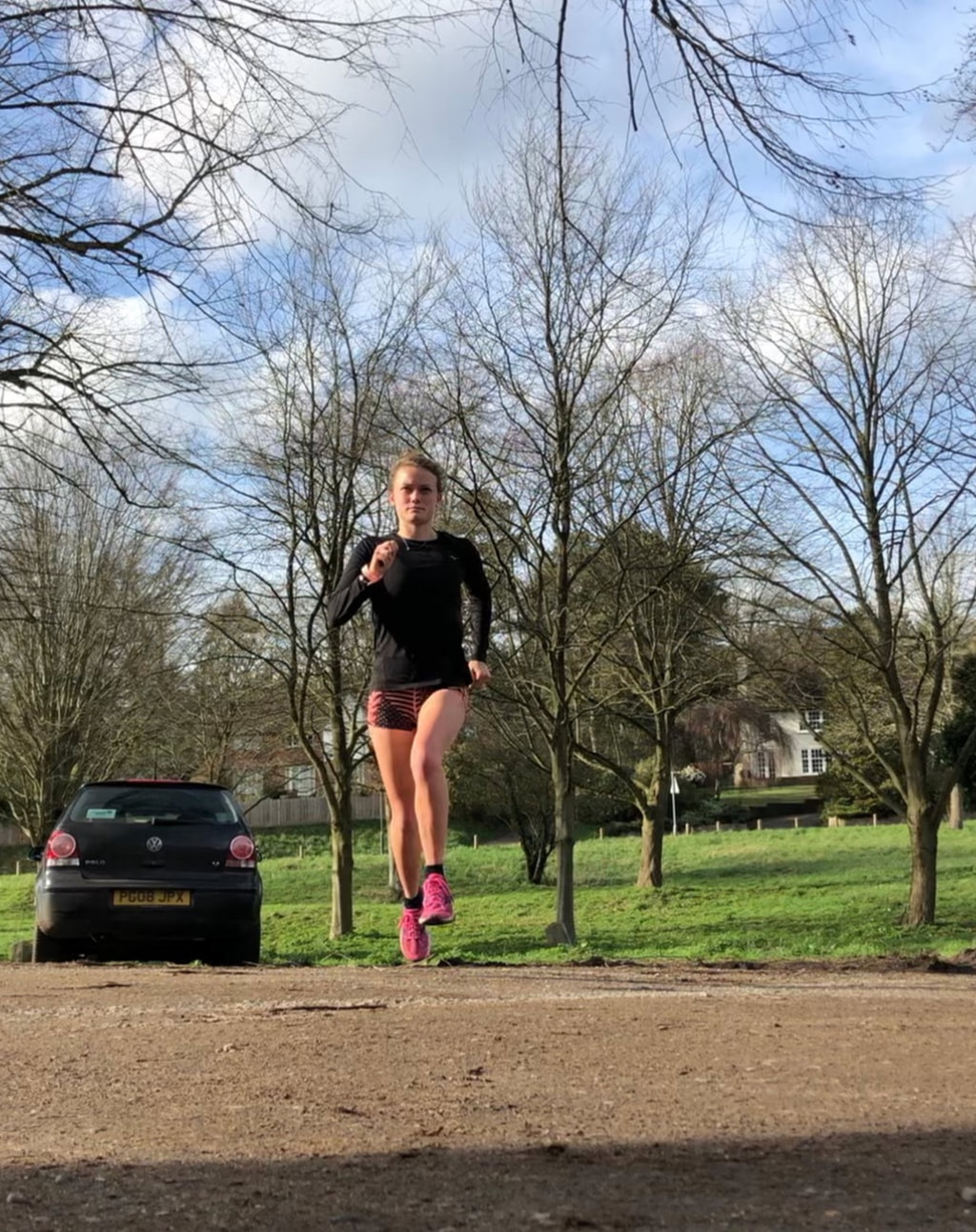
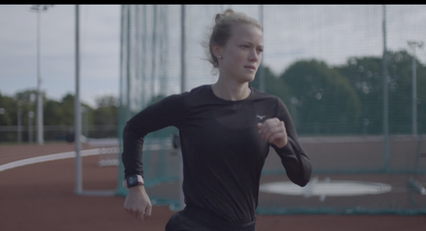
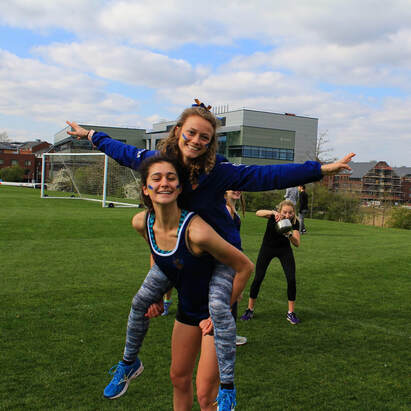
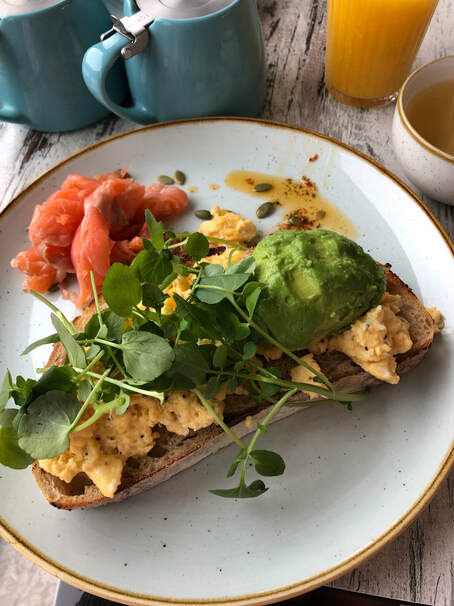
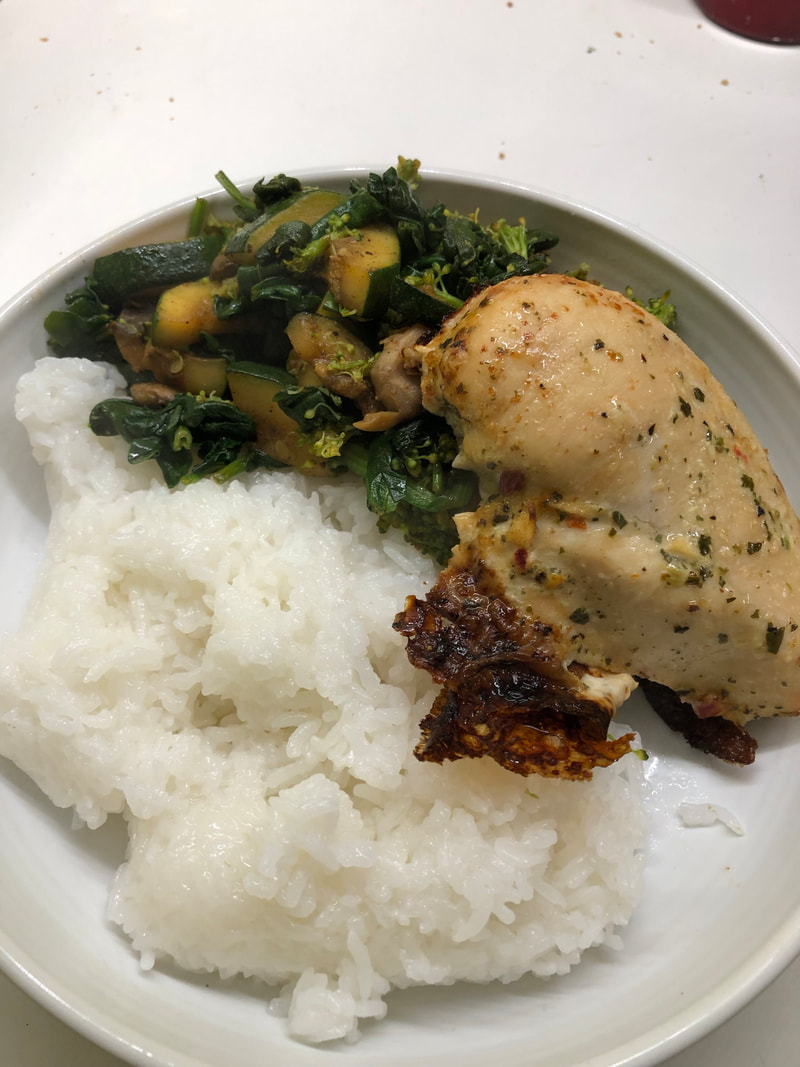
 RSS Feed
RSS Feed
